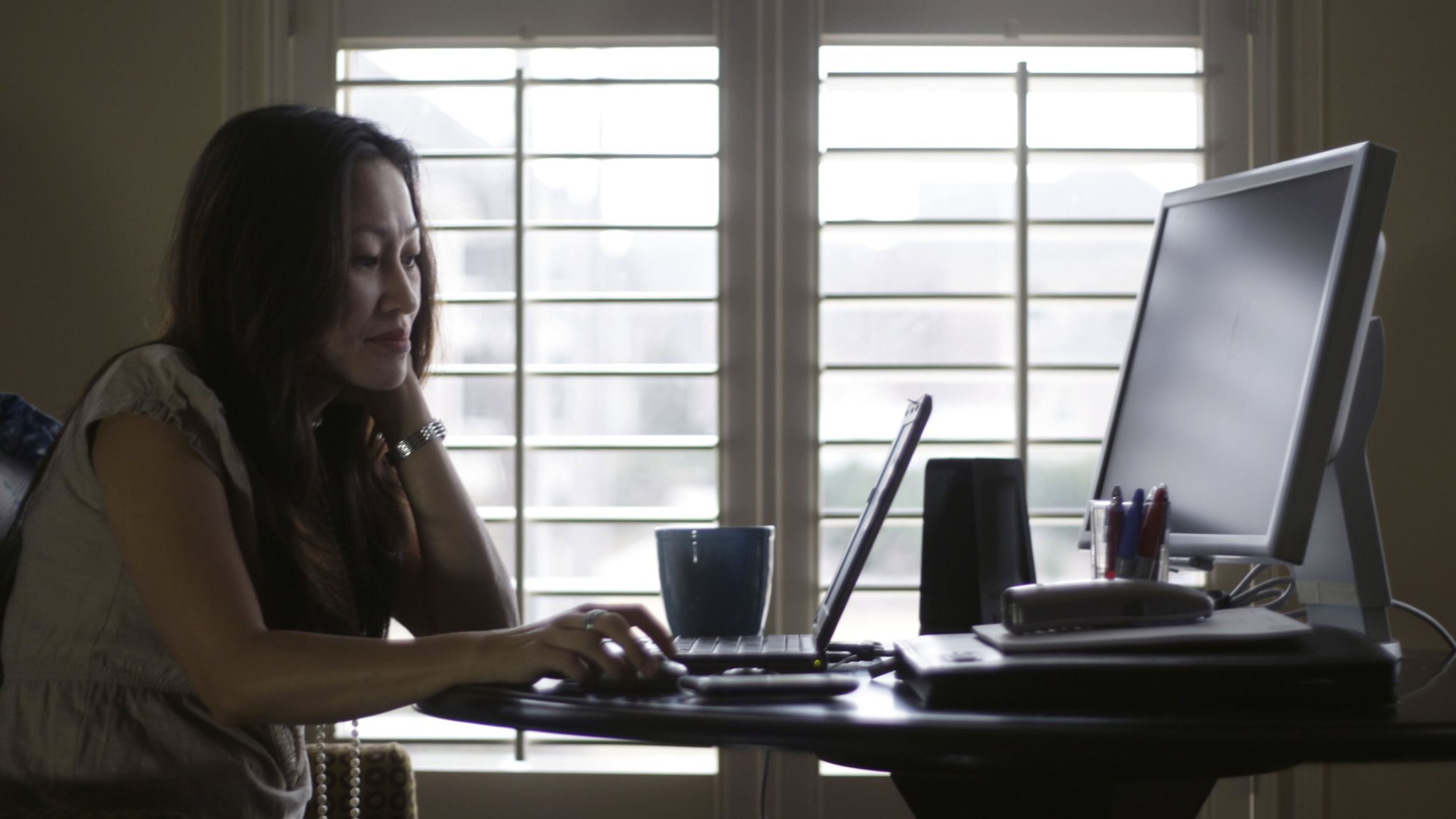OPINION: Why coronavirus may be a watershed moment in this digital age

They say if you do a thing for 14 days, it will become a habit.
If they’re right, a lot more of us are washing our hands and keeping them out of our faces. That’s a good thing.
We're sheltering inside, spending more time with family, working from home, making more purchases online, keeping up with coursework, and gathering for worship the same way.
If you’re suddenly remembering life after 9/11, wondering if things will ever be the same, welcome.
But unlike the days after 9/11, when houses of worship overflowed, governments have mandated we gather as little as possible or not at all. Thank God for the internet, right?
This time around, experts say, it might be the game changer for all of us. Instead of in-person experiences that people like me prefer, we may finally be forced to acknowledge and engage in what young folks have long thought of as not only necessary but normal.
The questions that linger for me, at least, are will this new way of doing things last and, more importantly, how will it impact our relationships with one another long term?
Whatever happens, David Weinberger, a senior researcher at Harvard’s Berkman Klein Center and a pioneering thought leader about the internet’s effect on our lives, businesses and ideas, told me this is going to be a clarifying moment for many fields that, no doubt, will soon discover that the price we pay for physical proximity is higher than we thought, and the deprivations we assumed intrinsic to digital social interactions are lower than we thought.
RELATED | Coronavirus outbreak: complete coverage
This, he said, is not entirely unlike what email did to business meetings in the 1990s.
“We thought we all had to get in the same room to work through issues and coordinate our efforts,” Weinberger said. “But as soon as email became common throughout organizations, the cost of having to get everyone in the same room became clear: The flow of work was put on hold until everybody had an open time and was in the same place.”
At meetings, for instance, he said everyone had to pay attention to conversations that merited the time of only some. Anybody remember those days?
With email, we not only were able to have the interactions we needed when we needed them, but those interactions also tended to be shorter, to involve only those who needed to be involved, and often were more social, enjoyable and democratic.
Timothy Golden, a professor in the Lally School of Management at Rensselaer Polytechnic Institute, agreed. Instead of a clarifying moment, he said the COVID-19 pandemic will be remembered as a watershed moment for remote work/telework.

Although the popularity of telework has been growing for years, he said, the urgent need brought about by this pandemic offers us the opportunity to learn from earlier lessons.
“It is not a time to panic, but rather a time to harness the lessons we have been learning and to put them to good use,” Golden said. “Not only will working remotely help change norms and mindsets about how we work, but it will also have lasting implications.”
RELATED | Kemp orders most state employees to work from home amid coronavirus outbreak
While many of us will return to the office full time once the pandemic subsides, Golden said both managers and employees will likely change how they think about telework and what is possible.
“As a result, remote work is likely to become increasingly popular, and indeed the ‘new normal’ for many employees across a range of occupations,” he said.
Of course, the digital age isn’t a new thing. It’s been with us for at least two decades.

The coronavirus simply made it a much more crucial, rather than an optional part of our lives. Online education instead of in-person classes, telemedicine instead of going into doctors’ offices, ordering food online rather than going into supermarkets can and will literally be a lifesaver.
“Unlike the people a hundred years ago when the Spanish flu hit the world, we are fortunate indeed to have a robust online culture already in place and very widely available,” said Paul Levinson, a Fordham University professor and founder of Connected Education, online graduate courses.
I asked Levinson whether he thought it would last.
“Given that the pandemic itself may last for the rest of the year, or, at least, into the fall, the uptick in online life and work will no doubt continue,” he said.
And yes, he believes, that’s a good thing.
RELATED | Ga. universities preparing online coursework if coronavirus spreads
“I’ve always thought the digital options were beneficial — with no pandemic. People always could interact with each other in person if they wished, and they’ll be able to do that again after we have the vaccine for the coronavirus,” Levinson said. “In the post-coronavirus pandemic world, working and being entertained online will continue as a helpful option.”
In terms of relationships, Golden told me that the widespread remote work that is occurring offers the distinct possibility that we may redefine how we develop and maintain relationships.

“It seems likely that an increasing number of people older than the 20-somethings will adopt social media as a necessary and perhaps even desirable tool to build and maintain relationships,” he said. “And they will use these technology-based tools to work remotely and to do so more effectively than ever before.”
If nothing else, Weinberger predicted many of us will discover what many large, distributed organizations have already figured out: Video conferencing not only works, but it lowers the hurdle to connection and people are able to inhabit a digital space with as much personality, humor and warmth as in most meetings in physical conference rooms.
“We’ll have to see what happens to productivity, which will likely be a function not only of the type of business but also how happily engaged the employees are,” he said. “If productivity stays roughly where it is, lots of people are going to figure out that they’re wasting time and carbon commuting to work every single day. Maybe this is how we break out of the five-day week. If productivity suffers, then that’ll be a different story.”
After 14 days of working from home, I’m pretty sure I could get used to telework. But please don’t ask me to give up talking to a news source face-to-face or force me to shop exclusively online or join a worship service that way. That kind of fellowship is marrow to my bones.
Find Gracie on Facebook (www.facebook.com/graciestaplesajc/) and Twitter (@GStaples_AJC) or email her at gstaples@ajc.com.


